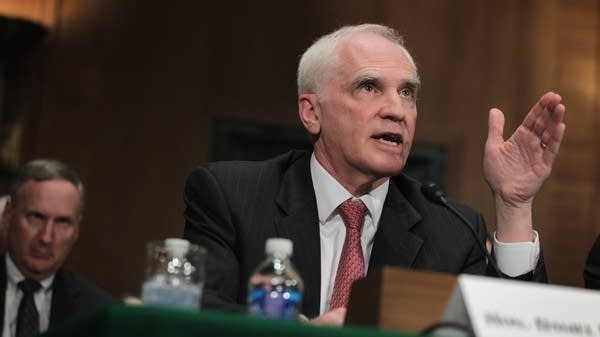Federal Energy Star label program, which helped curb electricity demand, said to be on chopping block
The Trump administration reportedly plans to cut the program, just as electricity demand is rising in the United States due to the rise in data centers and AI.

An energy efficiency program looks to be the next to get the axe from the Trump administration, according to reports by the New York Times and CNN. Energy Star is on the chopping block, despite a government report that found the program has saved households and businesses $500 billion in energy costs since it was implemented by George H. W. Bush.
Since the early ‘90s, the federal government has been rating appliances by their energy efficiency, according to Steve Nadel, executive director of the American Council for an Energy-Efficient Economy.
Things like “refrigerators, clothes washers, dishwashers,” he said. And commercial buildings, homes, air conditioners and furnaces, too.
“And if they are certified, they can use a little blue Energy Star label, which makes it real easy for consumers to say, ‘Ah, here's a high-efficiency product.’ And as a result, sales of these products have generally increased quite a bit,” said Nadel.
Consumers who buy Energy Star products save money by reducing their electricity bills and consumption. Millions of efficient product sales later, and energy savings really add up including at times of peak demand, Nadel added.
“So it really is helping to reduce the demand for electricity and the need for power plants,” he said.
Over the years, those energy savings have helped electricity demand stay relatively flat for the last couple of decades. But that’s changing thanks to new industries, per Joshua Rhodes, a research scientist with the University of Texas at Austin.
“The electricity grid is looking to grow with new loads, like AI and data centers and all these other types of things,” he said.
Building new natural gas power plants and transmission lines and other infrastructure takes time and money. Meaning, “it would be good to continue to be efficient in places where we can, like with the Energy Star program,” he said.
Because this is the time we need all the energy we can get.
“Energy efficiency programs can help to reduce the rate at which electricity demand is growing,” said Ramteen Sioshansi, a professor in the department of engineering and public policy at Carnegie Mellon University.
Of course, losing Energy Star won’t have an immediate impact. Sioshansi said a lot of appliances today won’t need replacing for a while. But looking ahead, “you might see less of a drive by those appliance manufacturers to make their appliances more energy efficient.”
And it will become more challenging, he said, for consumers to pick an appliance that is more energy efficient.
In response to Marketplace's request, the EPA would not comment directly on the status of the Energy Star program.













